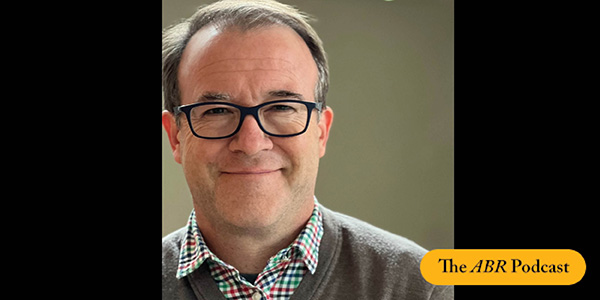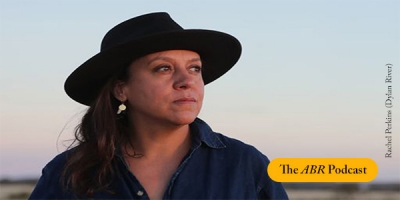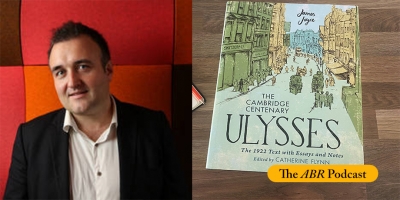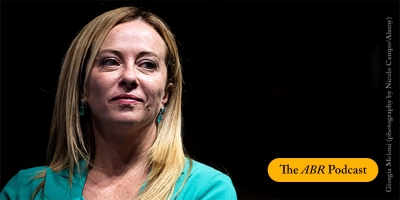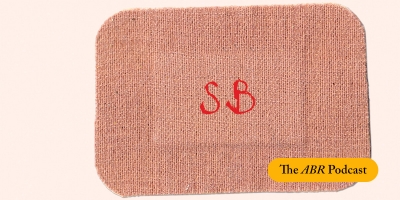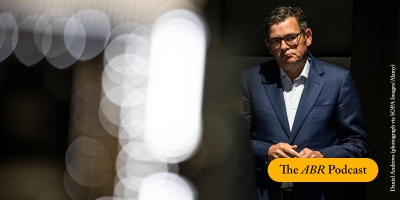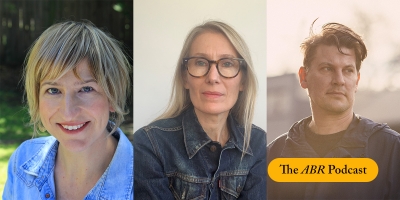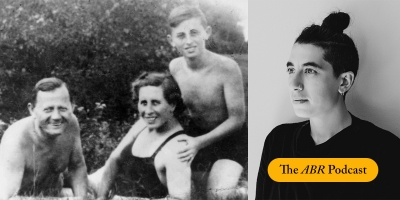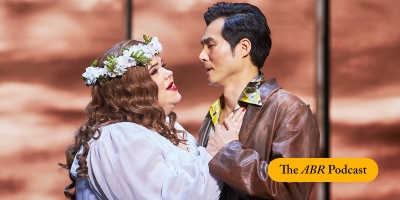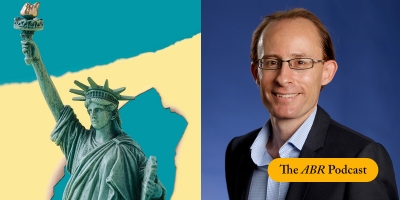Podcast
The ABR Podcast
Released every Thursday, the ABR podcast features our finest reviews, poetry, fiction, interviews, and commentary.
Subscribe via Apple Podcasts, Stitcher, Google, or Spotify, or search for ‘The ABR Podcast’ on your favourite podcast app.
‘Skewering AUKUS: A point-by-point account’
by James Curran
This week, on The ABR Podcast, James Curran reviews Turbulence: Australian foreign policy in the Trump era by Clinton Fernandes. Curran describes Turbulence as ‘an attempt to chart the coordinates of President Trump’s approach to the world’ and to explain how Australia, in ‘scrambling to remain relevant to Washington’, has become what Fernandes describes as a “US sentinel state”.
James Curran is Professor of Modern History at Sydney University and foreign affairs columnist for the Australian Financial Review. His books include Australia's China Odyssey: From euphoria to fear (2022) and he recently delivered a prestigious Boyer lecture, titled ‘Trump’s Gift’. Here is James Curran with ‘Skewering AUKUS: A point-by-point account’, published in the December issue of ABR.
Recent episodes:
In this week’s ABR podcast, Amanda Laugesen asks what the word ‘bogan’ says about Australian culture and society. Laugesen, who is Chief Editor of The Australian National Dictionary, explains the history of the word and its derivatives, including boganity. Listen to Amanda Laugesen’s reading ‘On Boganism’, which appears in the November 2022 issue of ABR.
... (read more)This week’s ABR Podcast features Anne Rutherford’s review of the new SBS miniseries The Australian Wars, published in the November issue of ABR. Directed by Arrernte and Kalkadoon woman Rachel Perkins, the series is an attempt to recast Australian frontier conflict by posing new questions. Echoing Perkins, Rutherford asks: ‘Why is the extreme violence of the frontier not recognised as war?’ and ‘Why is the death of an estimated 100,000 people on the frontier, both black and white, not acknowledged and memorialised?’ Listen to the ABR Podcast here.
... (read more)In this week’s ABR podcast, listen to Ronan McDonald discuss one hundred years of James Joyce’s Ulysses, among the most famous books of the twentieth century.
... (read more)Italy is used to political volatility. In today’s ABR Podcast, we learn about the new test facing Italy’s fragile political system following the cessation of the relatively stable leadership of Mario Draghi.
... (read more)In our October issue ABR Editor and award-winning memoirist Peter Rose reviews Childhood, a remarkable new memoir by Adelaide critic and writer Shannon Burns in which Burns relates the story of a childhood and adolescence spent in great poverty and neglect.
... (read more)As the November election date approaches for Victoria, Daniel Andrews is currently Australia’s longest-serving incumbent state premier. Journalist and author Gideon Haigh examines a new biography of Andrews by The Age’s state political reporter Sumeyya Ilanbey, noting her astute observations of Andrews and his ‘modus oper-Andrews’.
... (read more)In this year’s ABR Elizabeth Jolley Short Story prize, we received more than 1,300 entries from thirty-six different countries, a testament to ongoing international interest in the Jolley Prize and ABR. Writers explored themes and topics including the pandemic, climate change, grief, desire, parenthood, and community. In this week’s podcast, the three finalists read their shortlisted stories: ‘Dog Park’ by Nina Cullen, ‘Natural Wonder’ by Tracy Ellis, and ‘Whale Fall’ by C.J. Garrow. They are briefly introduced by Jolley Prize judge and ABR Deputy Editor, Amy Baillieu.
... (read more)The runner-up in this year’s Calibre Essay Prize, Sarah Gory’s essay ‘Ghosts, Ghosts Everywhere’ confronts spectres of the past in order to pose questions about how to live ethically in the present and about what responsibilities we bear towards the future. Drawing on a wide range of writers and thinkers as well as her grandfather’s experience of the Holocaust, Gory plots the process by which one generation’s traumatic suffering becomes another’s imaginative investment.
... (read more)Based on Antonio Garcia Gutierrez’s El Trovador, a romantic melodrama set against the backdrop of a fifteenth-century Spanish civil war, Giuseppe Verdi’s Il Trovatore has been described as the ‘apotheosis of the bel canto opera, with its demands for vocal beauty, agility and range’. Yet in what is also his darkest and most death-haunted work, Verdi invests the brightness and vocal embellishments of bel canto with greater dramatic tension ...
... (read more)Russia’s invasion of Ukraine in late February this year was met with near universal condemnation by Western nations. While aggression of this kind and on this scale has been relatively anomalous this side of the second world war, Russia’s disregard for the laws and institutions upholding global peace and security is far from unprecedented. In this week’s episode of The ABR Podcast, Ben Saul reads his commentary piece from the July issue, arguing that Western disrespect for international law is entirely consistent with Russia’s violation of ‘a stable, mutually agreed world order’ ...
... (read more)

